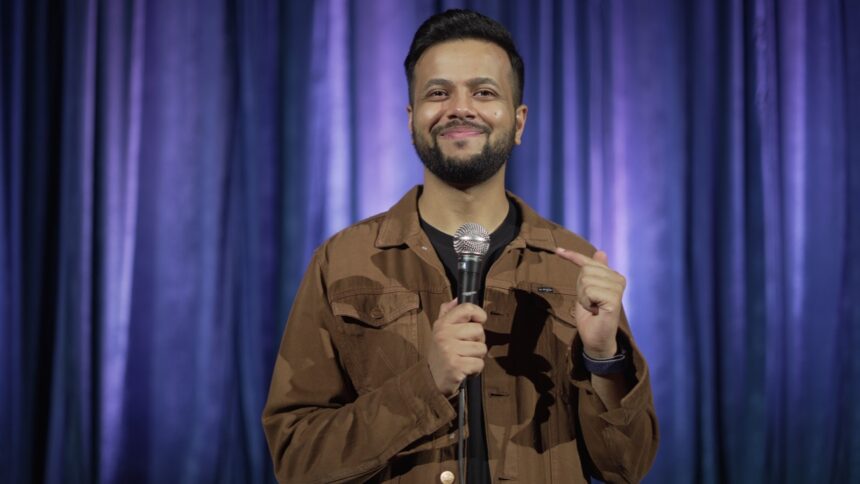If you are a stand-up comedy enthusiast, you would know East India Comedy (IEC), co-founded by Sorabh Pant, Kunal Rao, Sapan Verma, and Sahil Shah. The group played a huge part in shaping the stand-up comedy landscape in India, along with Tanmay Bhatt, Rohan Joshi, Gursimran Khamba, Ashish Shakya, Abish Mathew, Zakir Khan, and of course, Vir Das.
Verma went independent a while ago and has numerous sketches and shows under his belt now. Currently touring across the country with his recent special lower back pain, we caught up with Verma on all things comedy. He also spoke about the role AI has in our lives now and challenges he faces in life. Read the edited excerpts below:
Sapan Verma: The show is all about how my life has changed in the last year or so – turning 35, having a baby, feeling older looking at Gen Z and Gen Alpha kids, among other things. The one thing that connects all of us is lower back pain. It’s not age or gender specific, but more of a feeling that covers the mood of the show.
Sapan Verma: My stand-up comedy sets are not slapstick at all, they’re more observational and anecdotal. However, Indian audiences love slapstick comedy; that’s what you see in most mainstream Indian films. Indian audiences and their tastes are constantly evolving, thanks to the Internet and access to all kinds of content from around the world. That’s the beauty of India, there’s an audience for all kinds of content.
Sapan Verma: The Indian is only going to grow bigger, both locally and internationally. You can see Indian comics performing all over the world, and winning awards internationally. At the same time, more and more Tier 2 and Tier 3 city audiences are opening up to standup comedy as an art form.
Sapan Verma: One of the biggest challenges we have is the lack of infrastructure around stand-up comedy. We need a lot more comedy clubs in multiple cities. It would also help to get more investors, brands and OTT platforms on board for stand-up comedy or comedy format shows.
Sapan Verma: I don’t think AI has impacted or joke writing yet. We keep testing AI apps to see what jokes they come up with, and as of now, we have noticed that nuance and flavour are lacking. AI can write basic observational jokes, but stand-up comedians bring personal stories and distinct personalities to the stage. I think AI is good for basic research or creating basic posters and artwork.
Sapan Verma: It’s been one hell of a journey – chaotic, calming and life-altering. I did not think it would change me so much. I used to be one of those who never wanted kids. In fact, I used to joke on stage about not wanting children. But now, I have fully leaned into it. I love spending time with her, and say no to most parties and events. I even plan my touring schedule so that I can take a return flight the same night and be back home soon.
Sapan Verma: I’m not wise enough to give life advice but there’s one philosophy I’d like to pass on – have a strong sense of humour about whatever you do because nothing can promise success or failure, but as long as you have a good laugh, you’ll enjoy the journey.
Sapan Verma: When I moved to in 2005, I used to visit NCPA every month to watch plays. I come from a middle-class family, so obviously we’d get the cheapest tickets right at the back. The journey from sitting in that last row to performing my own solo show on the same stage has been beautiful and extremely humbling.
Sapan Verma: The best thing about performing in front of a Bombay crowd is that I don’t have to think if a joke will work or whether that line needs to be said in English or Hindi – I am a part of the Bombay crowd, they get me and appreciate my work as one of their own.








